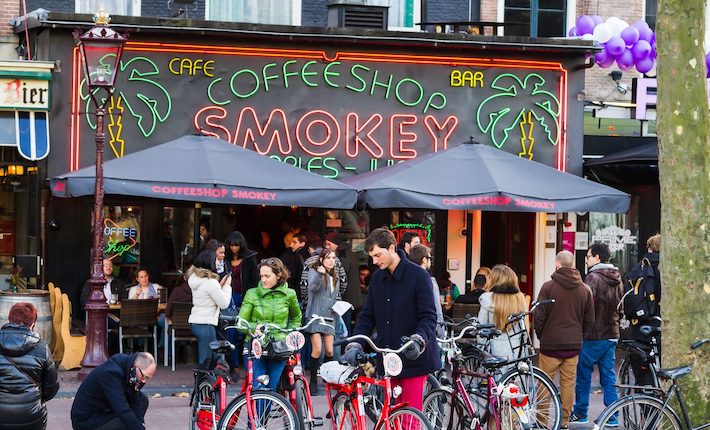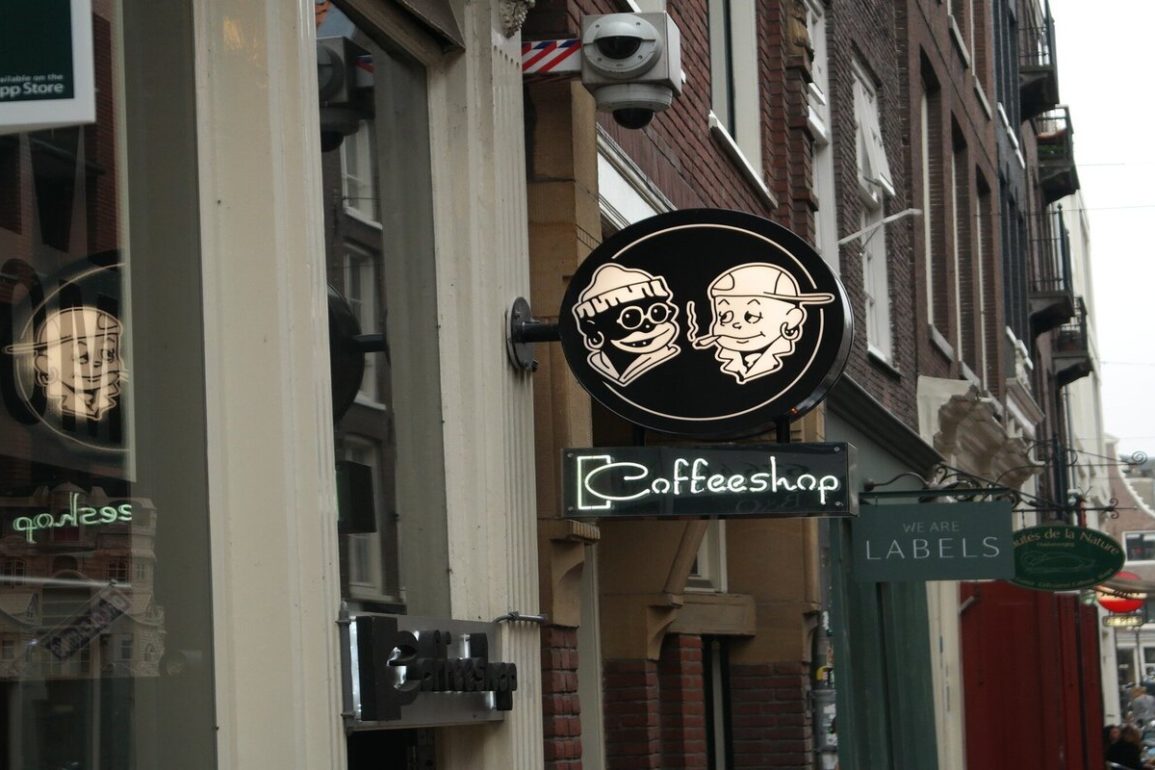TL;DR?
- Femke Halsema, Amsterdam’s mayor, is looking to ban non-residents from entering the city’s cannabis coffee shops
- Only Dutch citizens and registered residents will be allowed into coffee shops
- The move seeks to tackle organized crime and drug tourism, as well as encourage visitors to seek out other cultural and historical attractions
- The move may come into force in 2021 after the pandemic is over
- Police and public prosecutors back the move, though locals and business owners have mixed reactions
- Cannabis in the Netherlands is illegal, decriminalized for personal use. Coffee shops are tolerated
And just when you thought Brexit was bad, Amsterdam is considering breaking away from the rest of the world by prohibiting non-residents from entering its famous cannabis coffee shops.
The new proposal, led by the city’s mayor, Femke Halsema, is a piece of a much larger puzzle designed to tackle organized crime, reduce drug tourism, and encourage visitors to focus on other cultural attractions within the city.
The measure may come into force after the pandemic in 2021.
Only residents who hold a valid Dutch passport, as well as those registered to live in the Netherlands, would be permitted to enter any of Amsterdam’s 116 coffee shops, which account for over 30% of all coffee shops across the country.

“We have seen many groups of young people who only come to Amsterdam to go to the ‘coffeeshops',” wrote Mayor Halsema in a letter to Amsterdam’s city council, adding that the influx of cannabis-loving visitors causes inconvenience to local residents.
Police and the Public Prosecution Office are supportive of this move. However, there are mixed feelings among locals and business owners.
Speaking with Dutch News, Joachim Helms, a spokesperson for Bond van Cannabis Detaillisten (BCD), believes this won’t stop the demand for cannabis, nor will it stop tourists searching for it outside of legal coffee shops.
“What the people who made this plan don’t realize is that cannabis is a popular product that people enjoy worldwide…People want to smoke their joint. If that can’t happen in a coffee shop, then they will buy it on the street,” he states.
Meanwhile, others have praised the move.
Robbert Overmeer, a local bar owner and member of the local small business group BIZ Utrechtsestraat, also spoke with Dutch News. He believes cannabis coffee shops attract low-value visitors who simply want to get high and pour money into the equally low-value tourist hotspots.
“The coffee shops are one of the most important links in the chain of low-value tourism: Nutella pancake shops, cheap cafes and restaurants, souvenir shops that will take over the inner city…We don’t necessarily just want people with a lot of money: we say come to Amsterdam for the museums, the food, for love or for friends, but not to skulk around, smoke dope and do drugs.”
This isn’t the first time Amsterdam has sought to curb the influx of cannabis-seeking tourists. The city put tough restrictions on Airbnb rentals, increased tourist tax by 7%, and limited the number of stores designed for visitors.
These measures, however, didn’t really have much of an effect on foreign visitor numbers coming into the Netherlands. In 2018, approximately 19 million tourists visited the country. Of this number, over 2.5 million from the UK, US, and Canada visited Amsterdam.
By 2020, the total number of visitors to the Netherlands was predicted to be roughly 21 million.
Cannabis in the Netherlands is illegal but decriminalized for personal use under the country’s “tolerance policy”. Individuals can possess up to 5 grams but may be confiscated by police officers if searched, especially at the border. Production is prohibited, though cannabis coffee shops are allowed to sell it.
As a result of this leniency, Amsterdam is globally known as the Mecca of cannabis. Millions of tourists from around the globe embark on a pilgrimage to join other red-eyed individuals sampling the city’s finest marijuana, many of whom aren’t locals (only 10% of Dutch citizens smoke cannabis).
Therefore, the question on everyone’s lips is will it stop tourists from visiting the city altogether?
Mayor Halsema hopes not, saying the city will remain “open, hospitable, and tolerant” even without easy access to cannabis.


